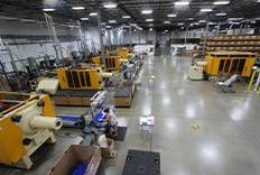The Plastic Injection Molding Industry has undergone a remarkable transformation in recent years, thanks to the advent of Industry 4.0 and Smart Manufacturing technologies. This dynamic duo has not only improved the efficiency and precision of the manufacturing process but has also opened up new possibilities for customization, sustainability, and cost-effectiveness. In this article, we will explore how Industry 4.0 and Smart Manufacturing have reshaped the Plastic Injection Molding
Understanding Industry 4.0
Industry 4.0, often referred to as the Fourth Industrial Revolution, represents a paradigm shift in manufacturing. It is characterized by the integration of digital technologies into every aspect of the production process. In the context of plastic injection molding, this means the incorporation of artificial intelligence (AI), the Internet of Things (IoT), big data analytics, and automation.
The Role of Smart Manufacturing
Smart Manufacturing, a key component of Industry 4.0, is all about making data-driven decisions to optimize manufacturing operations. In plastic injection molding, this entails collecting real-time data from sensors placed throughout the production line and using this information to enhance efficiency and quality.
Improved Efficiency and Precision
One of the most significant benefits of Industry 4.0 and Smart Manufacturing in plastic injection molding is the improvement in efficiency and precision. Smart machines equipped with IoT sensors can monitor the molding process in real-time, detecting any deviations from the desired parameters. This enables immediate adjustments to be made, reducing waste and ensuring consistent product quality.
Customization at Scale
Traditionally, plastic injection molding has been associated with mass production of identical parts. However, with the implementation of Industry 4.0 technologies, it is now possible to achieve customization at scale. Smart Manufacturing allows for the easy reconfiguration of molds and parameters, enabling manufacturers to produce a wide range of customized products without incurring significant downtime or costs.
Sustainability and Waste Reduction
The plastic industry has been under increasing scrutiny due to environmental concerns. Industry 4.0 and Smart Manufacturing offer a solution to this problem by optimizing processes to minimize waste and energy consumption. Real-time data analysis allows manufacturers to identify inefficiencies and implement changes that lead to reduced material waste and lower energy usage.
Predictive Maintenance
Downtime in plastic injection molding can be costly. Smart Manufacturing incorporates predictive maintenance, wherein sensors monitor the condition of machinery and can predict when maintenance is needed before a breakdown occurs. This proactive approach not only reduces downtime but also extends the lifespan of equipment, saving manufacturers significant costs.
Quality Control and Traceability
Ensuring product quality is paramount in the plastic injection molding industry. With Industry 4.0, manufacturers can implement advanced quality control systems that inspect each part in real-time using machine vision and other sensors. Additionally, the traceability of each product is greatly enhanced, allowing for better accountability and compliance with quality standards.
Human-Machine Collaboration
Contrary to the fear of job displacement, Industry 4.0 and Smart Manufacturing promote human-machine collaboration. Workers are freed from mundane, repetitive tasks and can focus on more complex and creative aspects of the manufacturing process. This not only improves job satisfaction but also enhances the overall efficiency of the operation.
Challenges and Considerations
While the benefits of Industry 4.0 and Smart Manufacturing in plastic injection molding are undeniable, there are challenges to be addressed. The upfront cost of implementing these technologies can be significant, and there is a learning curve involved in training the workforce to operate and maintain the new systems.
Moreover, there are cybersecurity concerns as more data is collected and transmitted digitally. Manufacturers must invest in robust cybersecurity measures to protect sensitive information and prevent potential cyberattacks.
The Future of Plastic Injection Molding
The future of the Plastic Injection Molding Industry is undeniably linked to Industry 4.0 and Smart Manufacturing. As technology continues to advance, we can expect even greater integration of AI, machine learning, and automation into the manufacturing process. This will lead to further improvements in efficiency, sustainability, and customization.
In conclusion, Industry 4.0 and Smart Manufacturing have ushered in a new era for the Plastic Injection Molding Industry. These technologies have not only enhanced efficiency and precision but have also made it possible to achieve customization at scale and reduce waste. As manufacturers continue to embrace these innovations and overcome the associated challenges, the industry will undoubtedly become more competitive, sustainable, and adaptable to changing market demands.